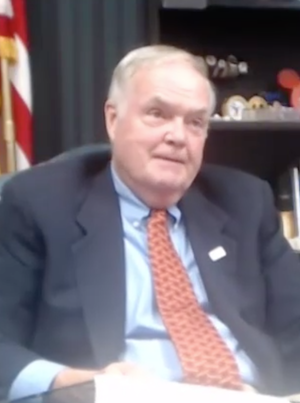Two of three members of the Texas Railroad Commission, the state’s oil regulator, blocked a motion Tuesday to make mandatory production cuts in Texas, saying that more time was needed for legal study and coordination with other producers.
Texas’ three-member regulatory commission has legal powers to cut production in order to prevent waste. Commissioner Ryan Sitton, who broght the motion, said, “Let’s be clear: taking weeks, even days right now to act is in itself a choice… I’m ready to vote. I’m ready for us to vote on proration.”
Formally, Sitton’s motion never got a second, so no vote was taken. But it was clear that the other two commissioners did not favor the move. Sitton commented, “I don’t believe that inaction on our part is acceptable.”
Sitton argued that the dramatic collapse in oil futures prices yesterday, which plunged well below $0 for May contracts, made immediate action necessary. June futures contracts today have fallen to $14.42.
At issue is a lack of storage for crude oil as demand has fallen sharply even as supply remains high, fueled by a recent Saudi bid for more global market share.
Sitton’s motion would have cut a million barrels a day of production, effective from June 1, but only if other oil-producing nations also cut by four million barrels.

“I think that this should absolutely be temporary…. when market demand gets back to 85 million barrels a day, then I think we should lift the proration,” he said. That level is about 15% lower than market demand two months ago, Sitton pointed out. That would set a high threshold for government intervention in the market, he argued.
The order would apply only to drillers of more than 1,000 barrels a day.
Sitton’s two fellow commissioners, Chair Wayne Christian and Christie Craddick, were more hesitant to intervene in the market right now. But both expressed openness to doing so sometime in the next few weeks — a move that could be coordinated with other states.
Christian noted that before the meeting he had been on the phone with U.S. Senator Ted Cruz, and with North Dakota’s chief oil regulator, and planned to speak with Senator John Cornyn.
Christian said, “I think it’s time that we really need to get the information correct before we make a move alone and by ourselves in Texas.”
Sitton retorted, “If we had more luxury to take more time, I would take it.”
Craddick, the lawyer on the commission, directed the legal staff to look into several legal questions around how to go about putting in place a proration order. “Can we legally prorate statewide or must we do it field by field?” she asked.
“Do we need an evidentiary hearing prior to any order and is one necessary to defend an order? Are marginal wells going to be left out, and what about other types of wells?”
The commission’s chairman said he didn’t want today’s meeting to be misconstrued as an unwillingness to take action later. Referring to Saudi Arabia’s recent move to flood the market, he said, “This is a war on our industry by our foreign adversaries. And we need to respond.”
“I do not want anyone to go from this meeting (saying) that the railroad commission is hesitant.”
